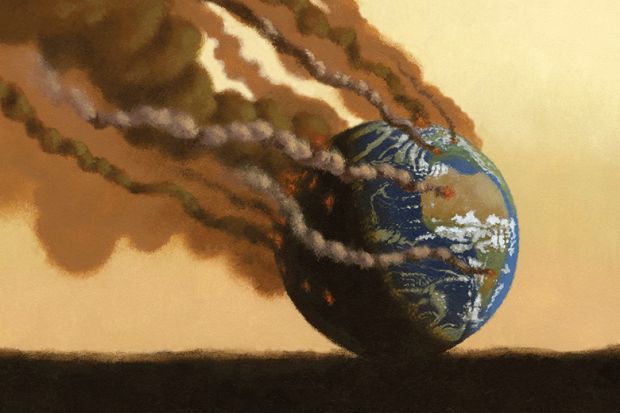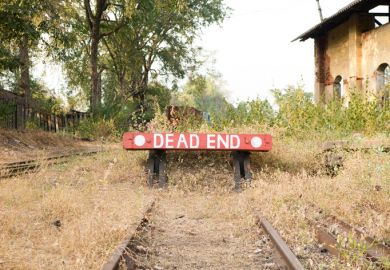So it was 2016, then.
In 2010 I wrote: “The period 2014-2018 will see a Great Event marking a major shift in the world system, the end of the long twentieth century and the emergence of the distinctive character of the twenty-first.” My book may have been called 2014: How to Survive the Next World Crisis, but I wasn’t out by two years – I had just given myself plenty of wiggle room.
My thesis was partly based on the observation that the previous five centuries all hinged on events in the middle of their second decades. But it also derived from a conviction that the financial crash of 2007-08 would inevitably lead to a geopolitical rearrangement, and it is surely undeniable that, for better or worse, that process has now begun.
Brexit on its own would not have qualified as the Great Event, which, as I understood it, had necessarily to involve both China and the US. China, I thought, resembled Germany after the 1871 unification: “a newcomer to the global club who, fired up by investment from the older members, is set to outperform them all”. And I feared that the US, “feeling and fearing the loss of its pre-eminence and the domestic disruption caused by international competition, may, as Britain did around 1900, accept the inevitability of confrontation and engage in a war of words which will eventually develop into a war of a different kind”. The danger signs would be any US retreat from international institutions and trade agreements, “any marked upgrading of China’s military capacity and any intensification of the ideological rhetoric. Taiwan is a permanent potential casus belli for either side.”
Donald Trump’s presidential campaign fired the opening shots in the war of words. His slogan, “Make America great again”, presumed a perception of national decline and brought him vital support from exceptionalist Republicanism. He has attacked the World Trade Organisation and the International Monetary Fund, promised to renegotiate or abandon trade agreements, including the North American Free Trade Agreement, threatened a trade war with China, raised the issue of Taiwan and questioned the purpose of having unused nuclear weapons.
Meanwhile, the Chinese have made explicit their aim to make the yuan a reserve currency to rival the dollar. They have constructed military facilities across the South China Sea and are developing ballistic missiles capable of destroying the aircraft carriers with which the US projects its power across the Pacific – rather as the German Navy League threatened British naval supremacy 100 years ago.
The parallels to the run-up to the First World War are more than coincidence. The empires that clashed disastrously in 1914 were the political structures that had enabled and been created by a globalisation process more extensive and successful even than that which we have seen since 1945. They were inadequate to deal with the tensions produced by a global economy that forced them into ever closer interaction. Similarly, the political system established in 1945 – supposedly autonomous nation states, both kept together and held apart by international organisations – is proving inadequate to deal with the tensions intrinsic to a global economy that cannot be confined, or controlled, within national boundaries. The pain of “those left behind by globalisation” is inseparable from the huge decline in world poverty that globalisation has also brought about. Since 1989, we have been seeing a reversal of the “great divergence” that, beginning in the 18th century, enriched Europe at the expense of China and India, previously the largest economies of all. The pain of Pennsylvania is the prosperity of Guangzhou, and who is to say that Guangzhou has not deserved it? Wherever it is felt, pain can be alleviated, or prevented, only by global agreements on national surpluses, for example, or the export of unemployment.
The financial crash of 2007-08 was the result of a failed attempt to mask, by financial trickery, the negative effect on Western employment and earnings of the vast expansion of the world labour market, as the world’s two most populous nations release their toiling billions from the servitude of subsistence farming. Through subprime mortgages and ballooning property prices, exaggerated values were assigned to fake Western assets – the houses occupied by those whom increased competition from the East would otherwise have impoverished. Financial markets everywhere were sustained by the pretence that such people would one day have the means that their parents had been able to aspire to, in the days when the world was smaller. When the pretence was exposed, the liabilities it created were taken over by central bankers, who will eventually burn them up in an inflationary bonfire.
With Trump and Brexit, the political outcome of the financial crisis has arrived. But protectionism and isolationism cannot stop globalisation by any means short of outright war. That is why the conclusion to my book was that if we are to survive the new crisis we need more, not less, international trade, more supranational institutions and more global governance. I see no reason to change that view.
Nicholas Boyle is emeritus Schröder professor of German at the University of Cambridge.
POSTSCRIPT:
Print headline: A Great Event has occurred, presaging dark days worldwide
Register to continue
Why register?
- Registration is free and only takes a moment
- Once registered, you can read 3 articles a month
- Sign up for our newsletter
Subscribe
Or subscribe for unlimited access to:
- Unlimited access to news, views, insights & reviews
- Digital editions
- Digital access to THE’s university and college rankings analysis
Already registered or a current subscriber? Login





